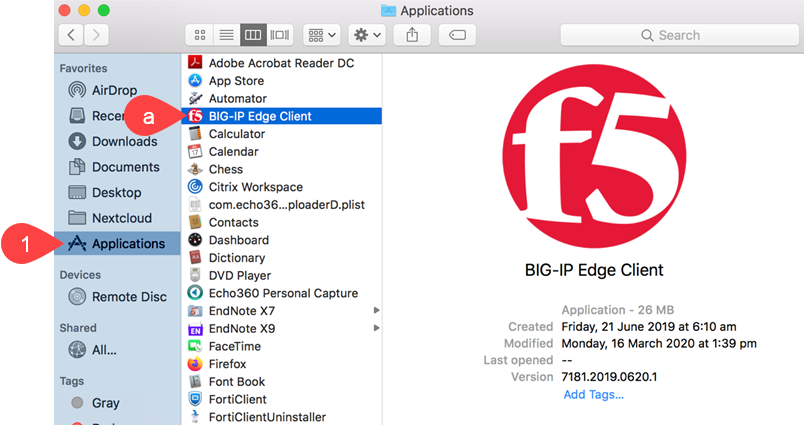

- Big ip edge client security certificate how to#
- Big ip edge client security certificate install#
- Big ip edge client security certificate download#
If you ever need to uninstall the proxy, run /opt/duoauthproxy/uninstall. You can accept the default user and group names or enter your own. The installer creates a user to run the proxy service and a group to own the log directory and files.
Big ip edge client security certificate install#
Install the authentication proxy (as root): $ cd duoauthproxy-buildįollow the prompts to complete the installation. View checksums for Duo downloads here.Įxtract the Authentication Proxy files and build it as follows: $ tar xzf duoauthproxy-latest-src.tgz
Big ip edge client security certificate download#
Depending on your download method, the actual filename may reflect the version e.g. On Debian-derived systems, install these dependencies by running (as root): $ apt-get install build-essential libffi-dev perl zlib1g-devĭownload the most recent Authentication Proxy for Unix from. On most recent RPM-based distributions - like Fedora, RedHat Enterprise, and CentOS - you can install these by running (as root): $ yum install gcc make libffi-devel perl zlib-devel diffutils See Protecting Applications for more information about protecting applications in Duo and additional application options.Įnsure that Perl and a compiler toolchain are installed. You'll need this information to complete your setup. Click Protect to get your integration key, secret key, and API hostname.

You should already have a working primary authentication configuration for your F5 BIG-IP APM users before you begin to deploy Duo.
Big ip edge client security certificate how to#
First Stepsīefore moving on to the deployment steps, it's a good idea to familiarize yourself with Duo administration concepts and features like options for applications, available methods for enrolling Duo users, and Duo policy settings and how to apply them.

If your organization requires IP-based rules, please review this Duo KB article. Firewall configurations that restrict outbound access to Duo's service with rules using destination IP addresses or IP address ranges aren't recommended, since these may change over time to maintain our service's high availability. This application communicates with Duo's service on TCP port 443.


 0 kommentar(er)
0 kommentar(er)
